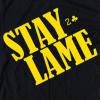Loopwheeled/Vintage T-Shirts
-
hello 2025!
supertalk is free to browse as a guest. You need to be a member to participate in discussions or buy and sell on the classifieds.
Classifieds listings are now free for members.
supertalk is now upgraded to //// supertalk 8 ////
______________________________________
Current new membership is $US 12 ONE TIME FEE. NO RENEWAL FEE.
______________________________________
You can also become a premium superseller or supermember. Businesses who want to promote their brand and products need to become a supersponsor. superfuture® is privately owned and has been online continuously for 26 years. supertalk has been online for 21 years and is a digital cockroach that will survive all current and future apocalypses.
-
Top 10 Active Viewed Topics
-
- 24430 replies
- 6901991 views
-
- 26784 replies
- 6430465 views
-
- 24769 replies
- 4755905 views
-
- 23104 replies
- 3879993 views
-
- 14062 replies
- 3725878 views
-
- 10651 replies
- 3289529 views
-
- 21291 replies
- 3110449 views
-
- 13320 replies
- 2954469 views
-
- 11647 replies
- 2712156 views
-
- 8534 replies
- 2626367 views
-











Recommended Posts
Join the conversation
You can post now and register later. If you have an account, sign in now to post with your account.